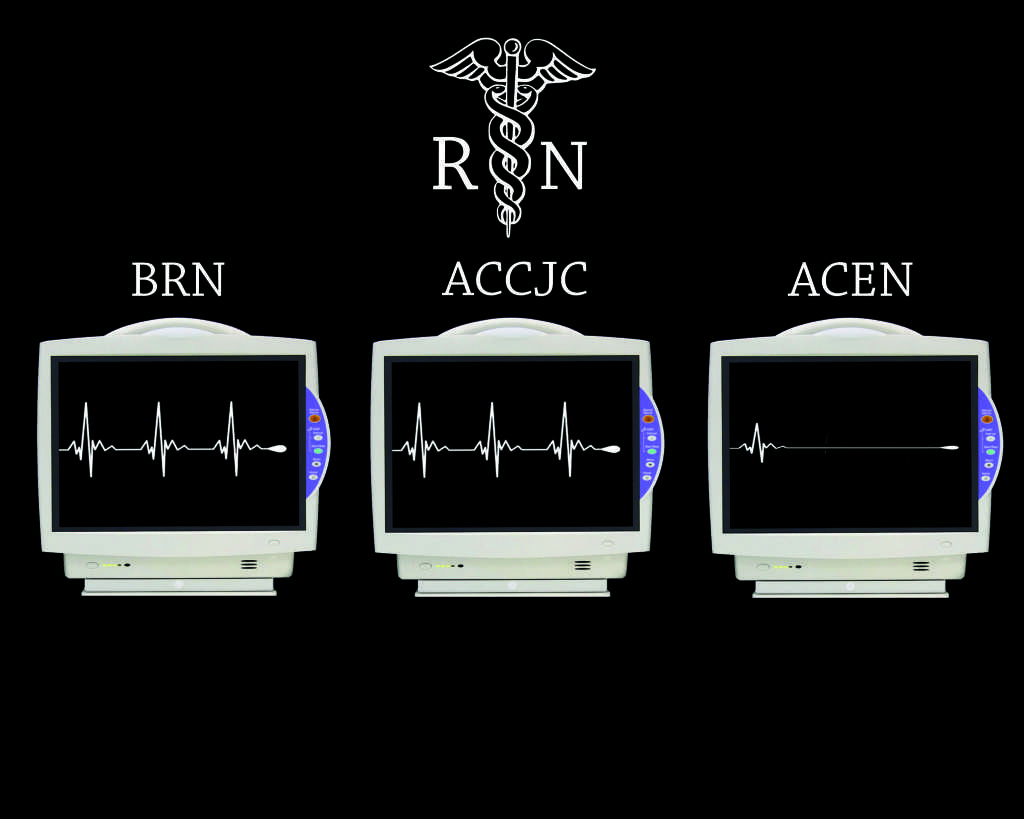EC’s nursing program has voluntarily withdrawn from the Accreditation Commission for Education in Nursing (ACEN) after years of failing to meet standards set by the accreditation service, according to a pair of letters from Francisco Arce, vice president of Academic Affairs to Thomas Fallo, president of EC.
“Students graduating from non-ACEN accredited colleges may not easily obtain employment in federal government installations,” according to a letter dated March 11. “Some private colleges may not accept transfer students from colleges that do not have ACEN accreditation; some specific grants and scholarships are only available to students attending ACEN accredited colleges.”
After reviewing the results of the last ACEN site visit from 2013, the Nursing Program faculty recommended withdrawing from the accreditation.
“It is in the best interest of the program to withdraw from the ACEN accreditation process at this time,” according to the same letter. “This will allow for program restructuring and development, as well as the opportunity to fully address and resolve the recommendations needed to meet the ACEN standards.”
In 2011, another ACEN site visit team evaluated the EC Nursing Program and recommended it be placed on warning status. After being given two years to resolve the initial deficiencies, the program submitted a self-evaluation report in the fall of 2013, followed by a site team visit that November.
“The team findings indicated that the Nursing Program does not meet the accreditation standards in three areas, and recommended revocation of ACEN accreditation,” according to the March 11 letter.
The first of these unmet requirement was regarding “Mission and Administrative Capacity” issues.
“The ACEN site team visit team observed limited documentation to support communities’ of interest (hospital affiliates, advisory committees) contributions to decision-making processes for program development,” according a second letter dated April 17.
EC disagreed with this ruling and issued a program response to explain their position.
“The Nursing Program supplied documentation demonstrating how two communities of interest provided input contributing to decisions for improving program learning outcomes and graduate satisfaction,” according to the April 17 letter. “A response was submitted to ACEN to correct errors of fact found in the Site Visit Report.”
The second standard noncompliant with ACEN was related to “Faculty and Staff.”
“Some faculty files did not include necessary document to verify academic credentials as required by various governing agencies,” according to the second letter. “The team also noted that the ratio of full-time to part-time faculty was not in compliance with the standards.”
The third requirement not in compliance with ACEN standards dealt with “Educational Outcomes,” which requires graduates to achieve standardized skills that adhere to an institutional mission.
According to the April 17 letter, “The team stated that the SEP (Systematic Evaluation Plan) lacked aggregate and trend data to successfully inform program decision-making for student learning outcomes and graduate/employer satisfaction. They also found a lack of data to confirm that graduates achieved competencies necessary for registered nursing preparation.”
Despite these deficiencies, EC issued a press release on April 4 outlining its ability to continue providing nursing instruction.
“El Camino College is fully accredited by ACCJC [the Accrediting Commission for Community and Junior Colleges] and with that authority is approved to offer a nursing program,” according to the press release. “The nursing program has been and continues to be approved by the BRN [and] ACEN accreditation is not required by the ACCJC standards for accreditation.”
Rory Natividad, division dean of Health Sciences and Athletics, also made assurances that EC will seek ACEN accreditation in the future. EC is still accredited by the mandatory Board of Registered Nursing (BRN).
“We remain in solid standing with that,” Natividad said about BRN. “We don’t plan on changing any of that and we plan to still continue to educate students for jobs, transfers, and for graduations. We are here to serve students as best we can.”
In the meantime, EC’s nursing students are concerned with the consequences accompanied by this change. Annie De los Reyes, 22, nursing major, predicted that the loss of ACEN accreditation will impact future opportunities for EC’s nurses.
“It does impact certain students in the program,” De los Reyes said. “Some jobs won’t hire you if your school wasn’t ACEN accredited.”










